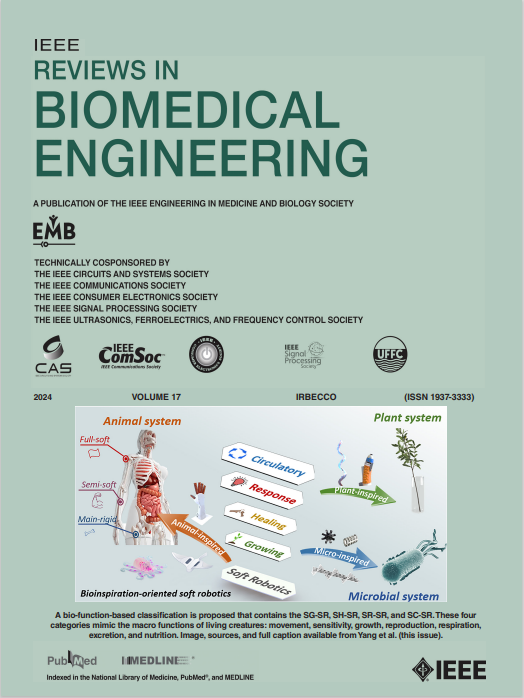超越监督学习,实现无处不在的医疗保健。
IF 17.2
1区 工程技术
Q1 ENGINEERING, BIOMEDICAL
引用次数: 0
摘要
机器/深度学习与传感技术的融合正在改变医疗保健和医疗实践。然而,医疗保健数据固有的局限性,即稀缺性、质量和异质性,阻碍了主要基于数据和标签之间纯统计拟合的监督学习技术的有效性。在本文中,我们首先明确了机器学习在无处不在的医疗保健领域所面临的挑战,然后回顾了为解决这三个问题而开发的完全监督学习以外的当前趋势。基于纯粹的完全监督学习所固有的经验风险最小化缺点,本调查总结了七种关键的学习策略,以提高实际部署的泛化性能。此外,我们还指出了这一领域新兴且前景广阔的几个方向,以开发数据效率高、可扩展且值得信赖的计算模型,并利用多模态和多源传感信息学来实现普适性医疗保健。本文章由计算机程序翻译,如有差异,请以英文原文为准。
Beyond Supervised Learning for Pervasive Healthcare
The integration of machine/deep learning and sensing technologies is transforming healthcare and medical practice. However, inherent limitations in healthcare data, namely
scarcity
,
quality
, and
heterogeneity
, hinder the effectiveness of supervised learning techniques which are mainly based on pure statistical fitting between data and labels. In this article, we first identify the challenges present in machine learning for pervasive healthcare and we then review the current trends beyond fully supervised learning that are developed to address these three issues. Rooted in the inherent drawbacks of empirical risk minimization that underpins pure fully supervised learning, this survey summarizes seven key lines of learning strategies, to promote the generalization performance for real-world deployment. In addition, we point out several directions that are emerging and promising in this area, to develop data-efficient, scalable, and trustworthy computational models, and to leverage multi-modality and multi-source sensing informatics, for pervasive healthcare.
求助全文
通过发布文献求助,成功后即可免费获取论文全文。
去求助
来源期刊

IEEE Reviews in Biomedical Engineering
Engineering-Biomedical Engineering
CiteScore
31.70
自引率
0.60%
发文量
93
期刊介绍:
IEEE Reviews in Biomedical Engineering (RBME) serves as a platform to review the state-of-the-art and trends in the interdisciplinary field of biomedical engineering, which encompasses engineering, life sciences, and medicine. The journal aims to consolidate research and reviews for members of all IEEE societies interested in biomedical engineering. Recognizing the demand for comprehensive reviews among authors of various IEEE journals, RBME addresses this need by receiving, reviewing, and publishing scholarly works under one umbrella. It covers a broad spectrum, from historical to modern developments in biomedical engineering and the integration of technologies from various IEEE societies into the life sciences and medicine.
 求助内容:
求助内容: 应助结果提醒方式:
应助结果提醒方式:


